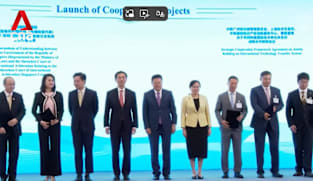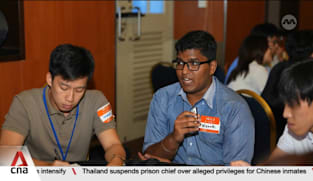Committee of Supply 2024 debate, Day 3: Edwin Tong on community disputes management framework
The Ministry of Law (MinLaw) has been working on a clear framework to manage community disputes. This should be done sooner, before disputes become intractable and cause irreparable rifts in society, leading to neighbourly friction and ultimately loosening the threads in Singapore’s fabric of cohesion, said Second Minister for Law Edwin Tong. Firstly, a team of dedicated personnel will be set up to respond to disputes on the ground, Mr Tong told Parliament on Friday (Mar 1). The Community Mediation Centre (CMC) has increased the number of volunteer mediators by 15 per cent over the past year, in anticipation of more cases. There are now close to 160 volunteer mediators. The CMC has also set up more satellite mediation venues in the neighbourhoods, so that residents can take part in mediation closer to their homes. In the past year, the number of satellite mediation venues has grown from six to 10. There are plans to add more in the neighbourhood. CMC has also started using Zoom for mediation when suitable to make mediation even more accessible. Secondly, to drive more cases towards an early and amicable settlement, mediation will be mandated in appropriate cases. The dedicated response team will be given powers to identify suitable cases and direct the neighbours to attend mediation. Mr Tong pointed out that in many community dispute cases, quick intervention can often help to prevent the matter from escalating. So, apart from mandating parties to attend mediation, this dedicated team will, in appropriate cases, be present at the location of the disamenity, and will be empowered to issue warnings and advisories. If the team is satisfied that there is evidence of persistent nuisance or egregious conduct, it can also issue an abatement order - which is a direction for the nuisance to stop. Non-compliance with an abatement order will be an offence. Mr Tong said the Government is now preparing to set up this dedicated unit of officers, which will take time. For a start, the unit will cover community disamenities like noise and hoarding, which could have a serious impact on community harmony. He stressed that it is not ideal for neighbours to turn to litigation immediately to deal with community disputes, and going to the Community Disputes Resolution Tribunals (CDRT) should be a last resort. For those who have to turn to the CDRT because upstream interventions have not worked, they must be able to obtain relief quickly and effectively, said Mr Tong. There are several process areas which will be improved for the CDRT to operate effectively. For example, in serious cases, the CDRT will be empowered to make interim orders on an expedited basis to allow affected residents to obtain quick relief, even as the case awaits a full hearing. Mr Tong said these measures will require legislation, which MinLaw is targeting to introduce later this year.
The Ministry of Law (MinLaw) has been working on a clear framework to manage community disputes. This should be done sooner, before disputes become intractable and cause irreparable rifts in society, leading to neighbourly friction and ultimately loosening the threads in Singapore’s fabric of cohesion, said Second Minister for Law Edwin Tong. Firstly, a team of dedicated personnel will be set up to respond to disputes on the ground, Mr Tong told Parliament on Friday (Mar 1). The Community Mediation Centre (CMC) has increased the number of volunteer mediators by 15 per cent over the past year, in anticipation of more cases. There are now close to 160 volunteer mediators. The CMC has also set up more satellite mediation venues in the neighbourhoods, so that residents can take part in mediation closer to their homes. In the past year, the number of satellite mediation venues has grown from six to 10. There are plans to add more in the neighbourhood. CMC has also started using Zoom for mediation when suitable to make mediation even more accessible. Secondly, to drive more cases towards an early and amicable settlement, mediation will be mandated in appropriate cases. The dedicated response team will be given powers to identify suitable cases and direct the neighbours to attend mediation. Mr Tong pointed out that in many community dispute cases, quick intervention can often help to prevent the matter from escalating. So, apart from mandating parties to attend mediation, this dedicated team will, in appropriate cases, be present at the location of the disamenity, and will be empowered to issue warnings and advisories. If the team is satisfied that there is evidence of persistent nuisance or egregious conduct, it can also issue an abatement order - which is a direction for the nuisance to stop. Non-compliance with an abatement order will be an offence. Mr Tong said the Government is now preparing to set up this dedicated unit of officers, which will take time. For a start, the unit will cover community disamenities like noise and hoarding, which could have a serious impact on community harmony. He stressed that it is not ideal for neighbours to turn to litigation immediately to deal with community disputes, and going to the Community Disputes Resolution Tribunals (CDRT) should be a last resort. For those who have to turn to the CDRT because upstream interventions have not worked, they must be able to obtain relief quickly and effectively, said Mr Tong. There are several process areas which will be improved for the CDRT to operate effectively. For example, in serious cases, the CDRT will be empowered to make interim orders on an expedited basis to allow affected residents to obtain quick relief, even as the case awaits a full hearing. Mr Tong said these measures will require legislation, which MinLaw is targeting to introduce later this year.



















